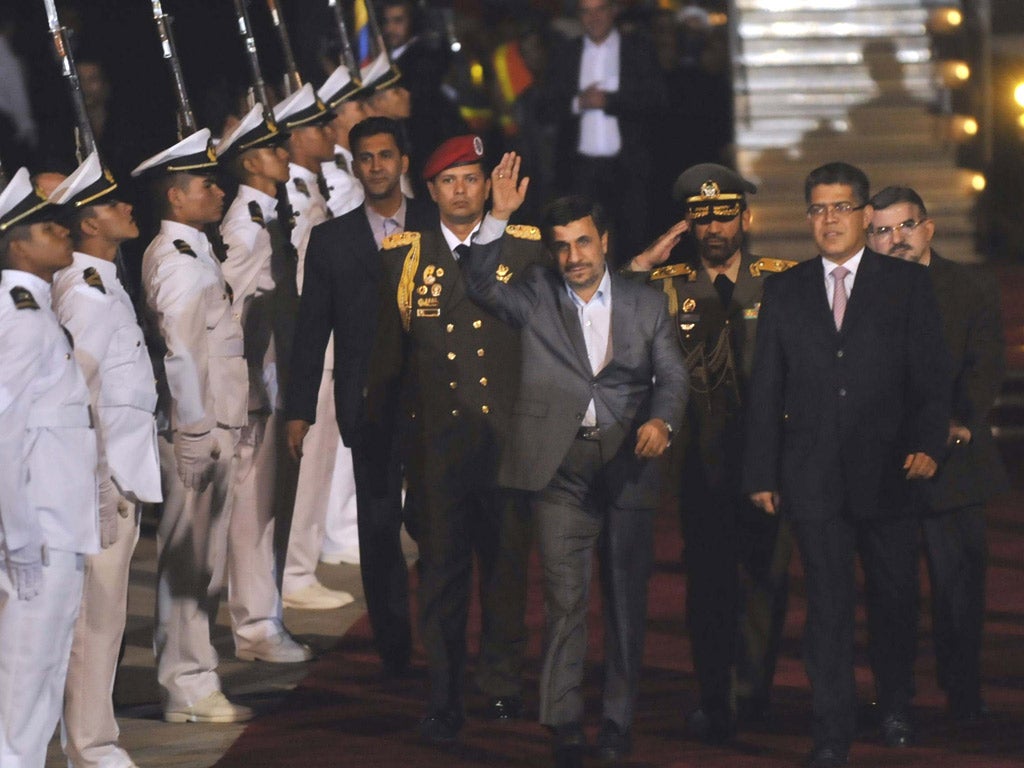Caught in the crossfire: US 'spy' facing death in Iran as relations worsen
As a 'CIA agent' is sentenced, Patrick Cockburn deciphers a dangerous diplomatic game

Your support helps us to tell the story
From reproductive rights to climate change to Big Tech, The Independent is on the ground when the story is developing. Whether it's investigating the financials of Elon Musk's pro-Trump PAC or producing our latest documentary, 'The A Word', which shines a light on the American women fighting for reproductive rights, we know how important it is to parse out the facts from the messaging.
At such a critical moment in US history, we need reporters on the ground. Your donation allows us to keep sending journalists to speak to both sides of the story.
The Independent is trusted by Americans across the entire political spectrum. And unlike many other quality news outlets, we choose not to lock Americans out of our reporting and analysis with paywalls. We believe quality journalism should be available to everyone, paid for by those who can afford it.
Your support makes all the difference.Iran has sentenced to death a former US Marine found guilty of working for the CIA in a move likely to deepen the crisis in relations between the US and Iran.
The Iranian Revolutionary Court claims the former Marine, Amir Mirzaei Hekmati, 28, who is a dual Iranian-US citizen, was sent on an espionage mission to Iran after receiving special training in Afghanistan and Iran. It said he was given the death sentence for "co-operating with a hostile country and spying for the CIA".
Mr Hekmati's father denied his son was a spy and said he had previously worked as an Arabic translator for the Marines before entering Iran four months ago to visit his grandmothers.
The White House denied Mr Hekmati was a spy and said it was trying to verify reports of the death sentence. The sentence was announced on Iranian radio shortly after the US imposed sanctions on the Iranian Central Bank to stifle its oil trade and the European Union announced it would impose an embargo on Iranian oil imports.
The court's verdict is the latest in a series of tit-for-tat actions and threats by Iran and its adversaries that could escalate into a military confrontation.
The struggle between Iran and the US is deepening because of Western and Arab support for the overthrow of the Syrian government, Iran's most important foreign ally. Its fall would be a serious blow to Iran. For its part, Iran is increasing its influence in Iraq in the wake of the departure of the last US troops in December.
Under Iranian law, Mr Hekmati, who was born in Arizona and graduated from high school in Michigan, has 20 days to appeal to Iran's Supreme Court. In a video confession broadcast on 18 December he said the CIA sent him to Iran to gain the confidence of the authorities and infiltrate Iran's Intelligence Ministry by giving information, some of which was inaccurate. The Iranian media claims Mr Hekmati was identified by Iranian intelligence while working at Bagram airbase north of Kabul.
Iran does not recognise dual citizenship, making foreign citizens of Iranian origin vulnerable when visiting Iran. It has previously sought to gain diplomatic leverage from holding foreigners for whatever reason, such as the arrest of three Americans hiking in Iraqi Kurdistan in 2009. All have now been released.
Iran and the US have often engaged in rhetorical confrontations that later subsided. There is no sign of this happening in the present case because American and Iranian leaders cannot afford to be seen compromising in the run-up to the US presidential election and the Iranian parliamentary election, both of which take place later this year. Republican candidates have already accused President Obama of not being tough enough on Iran.
The US Defence Secretary Leon Panetta said at the weekend that if Iran closed the Strait of Hormuz there would be a quick US military response. Iran insists it is only enriching uranium for civilian use, but the US says that its nuclear programme could be the precursor to developing a nuclear device.
Subscribe to Independent Premium to bookmark this article
Want to bookmark your favourite articles and stories to read or reference later? Start your Independent Premium subscription today.
Join our commenting forum
Join thought-provoking conversations, follow other Independent readers and see their replies
Comments